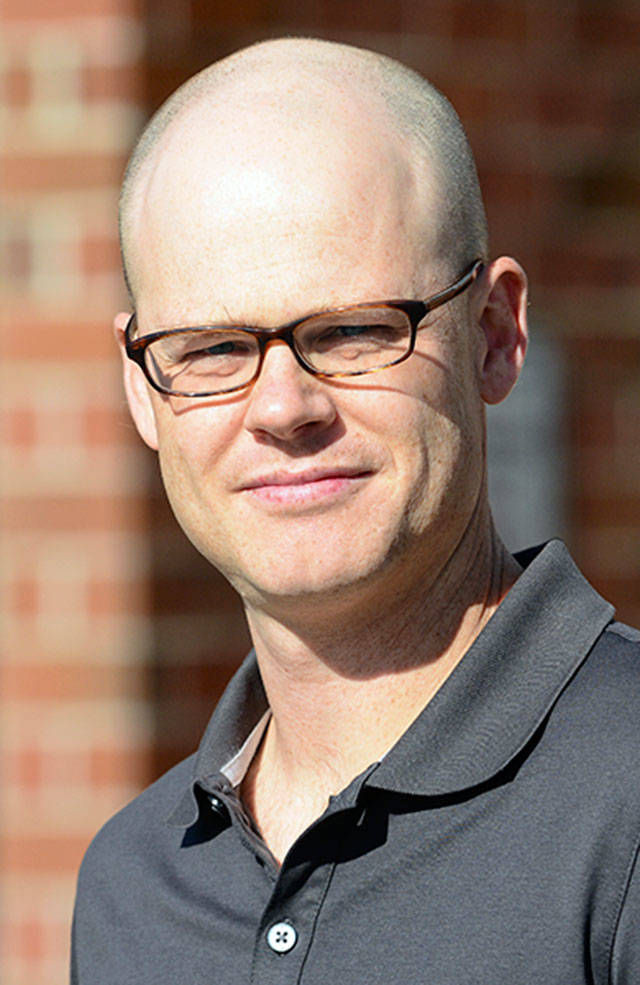FORKS — Clallam County Health and Human Services is preparing to expand its syringe exchange program to Forks with a pilot program expected to launch in the coming months.
The details aren’t firm yet, but the Clallam County Board of Health directed Health and Human Services to prepare plans for the expansion, said Clallam County Health Officer Dr. Chris Frank.
“Right now, we have a syringe services program in Port Angeles where we exchange needles, offer chemical dependency counseling, get naloxone out to people and test for Hepatitis C,” he said. “That’s really tough for people way out on the West End.
“We have people in Clallam County who drive all the way in here, but sometimes it’s hard and it makes it increase the risk that people are going to reuse needles,” Frank said.
He said he expects plans to firm up within the next month or two. The pilot would be for a short period of time “to see how it goes” and to see the demand for the services.
Frank said the exchange would likely happen the same day — though not at the same time — as other services provided by Health and Human Services.
He said 260,000 to 270,000 syringes are exchanged each year at the Port Angeles exchange, which is open every Tuesday.
They are exchanged on a nearly one-to-one basis. He said workers are not allowed to count individual syringes for safety reasons and that the exchanges are based on estimates.
“People need to bring a dirty needle in to get a clean one,” Frank said.
Clallam County Commissioner Bill Peach said he fully supports the exchange, not only because it prevents the spread of communicable diseases but because it encourages people to turn in needles instead of leaving them in parks.
He said that though many are concerned about having their tax dollars spent on providing clean needles for people who use drugs intravenously, taxpayers would still end up paying if the user catches hepatitis C or HIV.
Often, drug users don’t have money to pay their own medical costs, he said.
“It’s the general taxpayer who foots the bill,” Peach said. “I like the idea of preventing diseases, but also as a taxpayer, I like the idea of action we can take to decrease spreading of disease.”
He said he knows of places where dirty syringes are commonly found in Forks and Clallam Bay and he hopes the exchange would help.
“If you’re upset over the idea, please think about your tax dollar being used to care for their medical services,” Peach said.
“This is a way to decrease that substantially, and the humane part of this is that this would decrease a lot of suffering.”
Newly appointed Forks Police Chief Mike Rowley said he supports the expansion of the exchange to Forks but wishes there was a better way to address the opioid epidemic.
“I fully support that we need to keep people safe,” he said. “I do believe there needs to be accountability to that issue itself.”
Rowley said it’s not as if there are enough needles found in Forks “where you can’t go to parks” but said dirty needles are commonly found on the side of the road and in public areas. It’s not as bad as some other communities, he said.
Rowley said he has conflicting feelings about syringe exchanges but that the safety of Forks citizens is imperative.
“I generally support it, but I would love to find a better solution,” he said. “The needle exchange doesn’t solve the problem, and it provides a safer environment to use drugs.”
Clallam County Commissioner Mark Ozias said syringe exchanges are an effective part of public health outreach and that he is glad the program is expanding to the West End.
“In general, as we listen to the experts about how to best address opioid addiction, what we hear is how important it is to meet people where they are and to provide opportunities to engage in diversion from that activity and to provide encouragement to seek treatment,” Ozias said.
________
Reporter Jesse Major can be reached at 360-452-2345, ext. 56250, or at jmajor@peninsuladailynews.com.

